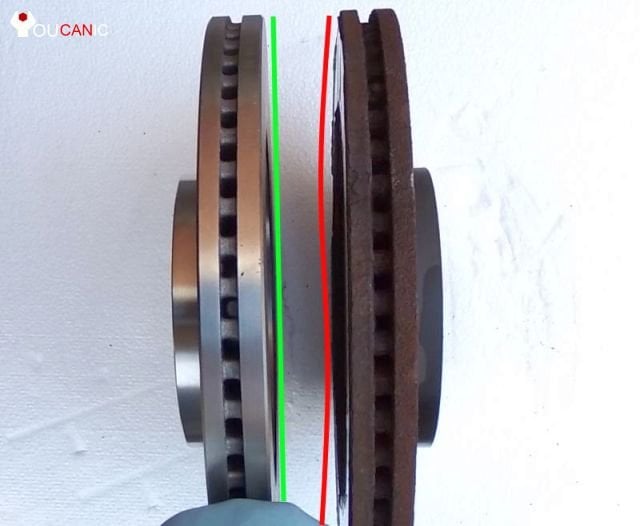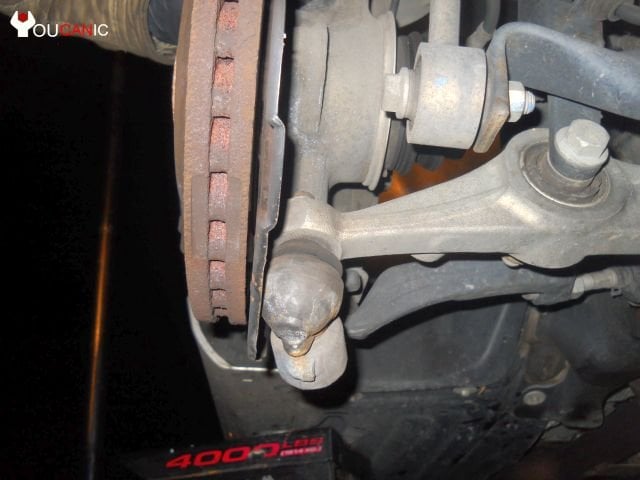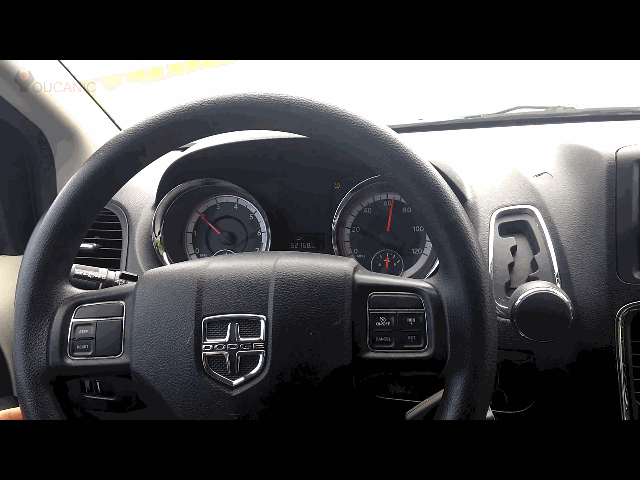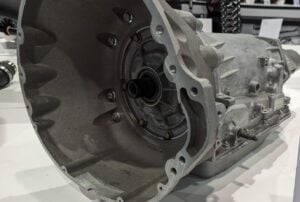Steering Wheel Shakes When Braking
A steering wheel that shakes when braking can be an unnerving experience for any driver. Feeling the steering wheel shake or vibrate while the car is in motion or braking can indicate a larger problem that should be fixed immediately.
Symptoms
To figure out what is causing the vibrations, it is important to pay attention to the conditions when the steering wheel shakes. Does it shake all the time? At high speed only or when you slow down or brake? In this article, we will cover common causes of steering wheel vibrations.
- Steering wheel shaking or vibrating.
- Steering wheel vibrations at high speeds
- Steering wheel vibrations shake when braking.
- Steering wheel vibration at 60, 70 mph
- The steering wheel vibrates after tire rotation or new tires.
- The steering wheel vibrates,
- Steering wheel rumbling in different driving scenarios, including accelerating, coasting, and braking.
Common Causes
Warped Rotors

Warped rotors typically result from them getting too hot. This can happen when the vehicle is towing too much weight or exposed to extreme stress. Poor rotor material can also contribute to warped rotors. This is the most common cause of steering wheel shaking when braking or slowing down.
Uneven rotor wear
If you recently had your rotors replaced, it is possible that incorrect tightening is causing your steering wheel to shake. Rotors must be tightened to particular torque specifications and in a certain arrangement. Not doing this correctly can damage the rotor and cause your steering wheel to vibrate. Stuck or damaged brake calipers can also cause uneven rotor wear.
Ball Joint Wear

This problem is less common. A worn-out ball joint can cause the steering wheel to vibrate, especially under heavy braking. This is the case when the ball joint has excessive wear. You can hear noise from the front end during braking. It will be from one of the front wheels. Raise the suspected front wheel, grab it at the top and bottom, and shake it. Your tire will move back and forth if the ball joint has excessive play.
Damaged Brake Pads

If the brake pads break, as shown in the image above, they can cause the steering wheel to shake. It is not very common for the brake pads to break loose. You must remove the brake pads and inspect them to know if this is the problem.
Frequently Asked Questions
Steering wheel vibration after tire rotation
You may take your car in to get a tire rotation, or maybe you just installed new tires, and now you notice excessive tire vibration. How is that possible? If you had your tires rotated, what most likely happened is one of your back wheels was bent or warped, and is now causing you problems because it has been moved to the front. You may never know if the wheel or rim is bent slightly as long as that tire is in the back. You will notice excessive steering wheel shaking once you move the tire to the front. Often, car owners may notice steering wheel vibrations after a brake job. Make sure that the rear wheels don’t get moved to the front. Usually, rear wheels that are not balanced get moved to the front during a brake pad replacement and cause steering wheel vibrations.
Steering wheel vibration after installing new tires
If you had new tires installed, the cause in most cases is that one of the rear wheels may have been bent a little bit, and now it has ended up in the front with a new wheel. Because the front wheels are connected to your steering wheel, you start to notice vibrations that you wouldn’t notice when the rim was installed in the back. There are also a few cases when a new tire is defective and causes the steering wheel to shake, especially at freeway / high speed. If you had new tires installed, you should take the car back to the shop that installed the tires for reinspection.
Steering wheel shaking at low or high speeds.
Generally speaking, when the steering wheel is shaking, and the condition of the rotors has been ruled out, the problem may be with tires that are out of balance, especially if the shaking or vibration occurs at high speeds between 60-70 mph. When tires are placed on your car, mechanics will put small weights on the inside and outside of the rims to help ensure that the tires are rotating smoothly and in a balanced manner. They put the tires on a special machine that spins them at different speeds and indicates where weights must be placed. As tires wear further, they may need to be balanced again. Also, sometimes, in an accident or some other collision with the tire, the weights can fall off, putting the tires out of balance.
There are several reasons why tires can become out of balance, which ultimately causes shaking in the steering wheel. These reasons include:
Tires become out of round (taking on a more oval rather than perfectly round shape) over time as the tread starts to wear down.
Wear and tear on front-end parts, including wheel bearings, ball joints, axles, etc.
Flat spots on the tire surface can be caused by repeated driving on unbalanced tires, hard braking, or if the vehicle has been sitting for a long time without being driven.
If you have recently driven through a big snowstorm or snowy roads, snow and slush will likely build up within the wheels. This snow/slush mix can turn to ice if the car is parked overnight, resulting in unbalanced tires. In this case, allowing the ice to melt or knocking the snow chunks out of the wheel parts will solve the problem, and then, if the shaking continues, the tires may need to be rebalanced.
Tires out of alignment can cause the car to veer to one side while driving straight and cause uneven tire wear on the inside or outside tread. Uneven tread wear can result in steering wheel vibrations. This is why it is important to get regular tire rotations—they ensure your tire tread will wear down evenly, preventing uneven wear and shaking or vibrating of the steering wheel or vehicle.
We hope you find the Steering Wheel Shakes When Braking guides helpful. Check these troubleshooting and repair guides for more help on your vehicle.









